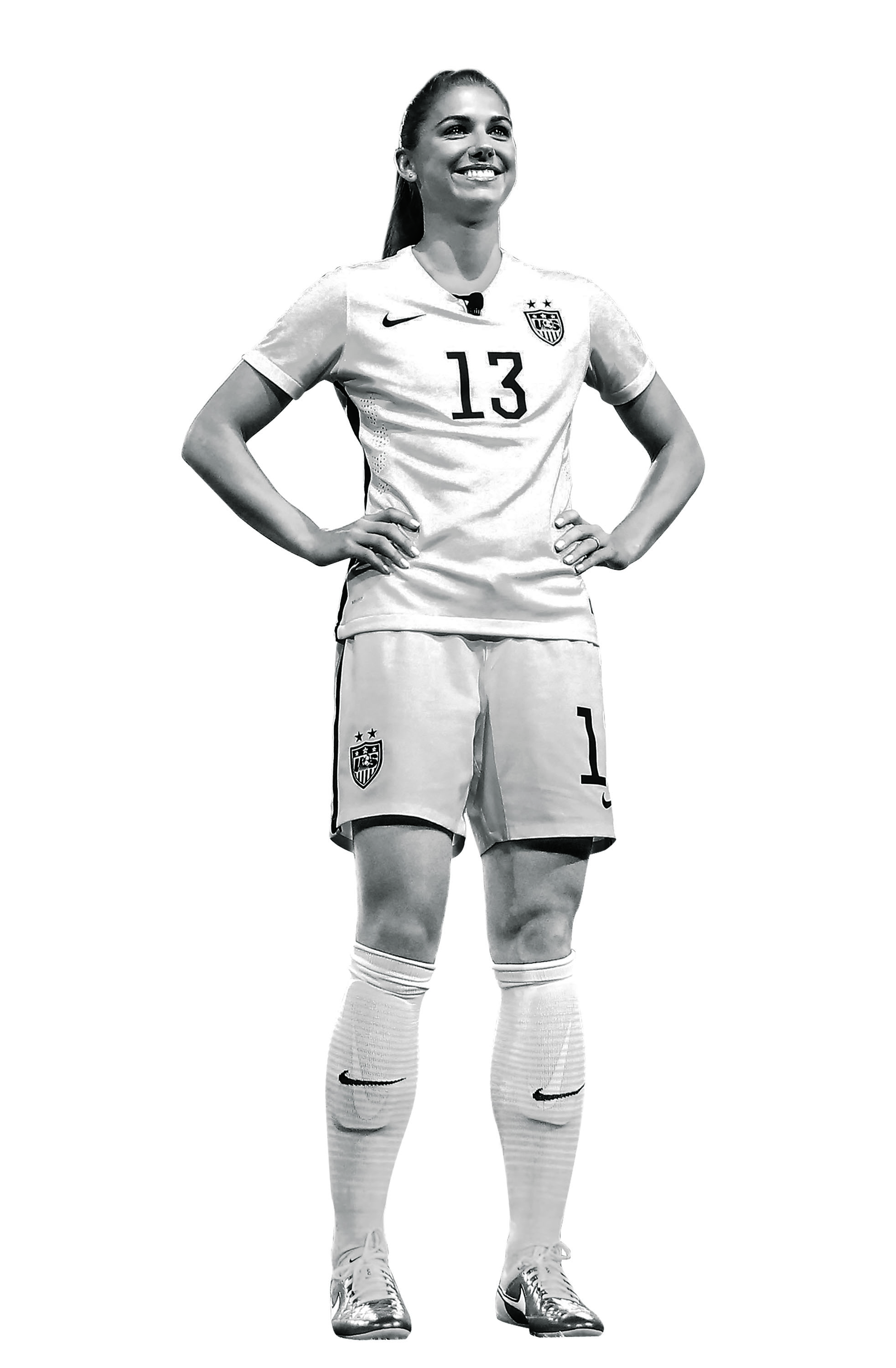
What impact could a win for the U.S. women’s team have on your sport?
At the 2011 World Cup, the sport gained so much popularity from us being a finalist. That’s exciting. The reaction’s going to be big. Women’s soccer will continue to grow.
You guys coughed up two late leads in the 2011 final against Japan. How often do you think about that crushing loss?
Something–if not every day, then every week–has brought me back to that game. I’ve never actually allowed myself to watch it. I don’t need to put myself through that again. I strive to feel like how Japan felt that day.
For the first time, FIFA is staging the women’s World Cup on artificial turf. You joined a discrimination lawsuit, now withdrawn, against FIFA to change the fields to natural grass. Does the issue still rankle you?
There’s something deep down that still annoys and frustrates me. There are injuries that I, and a lot of players, have had that stemmed from turf. I’m confident that we will never play on turf again. My teammate Abby Wambach has had discussions with FIFA executives who have personally told her that turf will never be part of a World Cup in the future.
Why hasn’t a women’s pro soccer league achieved mainstream popularity?
It needs to be a great environment for fans. And if that means drinking a beer and having a pizza, maybe the demographic we’re going for shouldn’t be 10-year-old girls all the time. It’s great to have a girls’ soccer team at the game. But those are not going to be your fans week in and week out.
In high school sports, women’s soccer has the second highest concussion rate, behind football. What advice would you give to worried parents?
It’s important when you’re young to have a coach teach you how to protect yourself. Keep your shoulders and elbows up. But injuries are part of sports. I hope science advances to understanding how to heal concussions.
So many female athletes have to deal with sexism and misogyny. Do you?
I have experienced sexism multiple times, and I’m sure I will a lot more. I feel like I’m fighting for female athletes. At the FIFA World Player of the Year event [in 2012], FIFA executives and FIFA president Sepp Blatter didn’t know who I was. And I was being honored as top three in the world. That was pretty shocking.
Why do you always wear a pink headband?
When I was dating my now husband, his mother was a recent cancer survivor. Now she’s more than five years cancer-free. It was to honor her, and then it was a way for me to have some consistency in my life.
You’ve walked runways and posed in Sports Illustrated‘s Swimsuit Issue. Critics say that when female athletes publicize their looks, they’re reinforcing the stereotype that they need sex appeal to boost popularity. What’s your reaction?
That’s ridiculous. I didn’t do it to attract thousands more fans to our games. I did it because I thought it was a fun opportunity. If it attracts fans, then great.
You’re married to pro soccer player Servando Carrasco, of the Houston Dynamo. Will your kids face pressure to be really good at soccer?
I will put no pressure on my kids. I mean, maybe a little bit. My husband won’t. We both grew up in families where our parents were supportive and never put stress in a certain direction. And I think that’s how we’ll be.
Who has influenced you most?
The people I am surrounded by: my family–my sisters and parents–and of course, my teammates.
–SEAN GREGORY
FOR MORE INTERVIEWS LIKE THIS, GO TO time.com/10questions
FIND THE INSPIRATION TO PURSUE YOUR DREAMS AT AMFAM.COM/DREAMS
More Must-Reads from TIME
- Why Trump’s Message Worked on Latino Men
- What Trump’s Win Could Mean for Housing
- The 100 Must-Read Books of 2024
- Sleep Doctors Share the 1 Tip That’s Changed Their Lives
- Column: Let’s Bring Back Romance
- What It’s Like to Have Long COVID As a Kid
- FX’s Say Nothing Is the Must-Watch Political Thriller of 2024
- Merle Bombardieri Is Helping People Make the Baby Decision
Write to Sean Gregory at sean.gregory@time.com